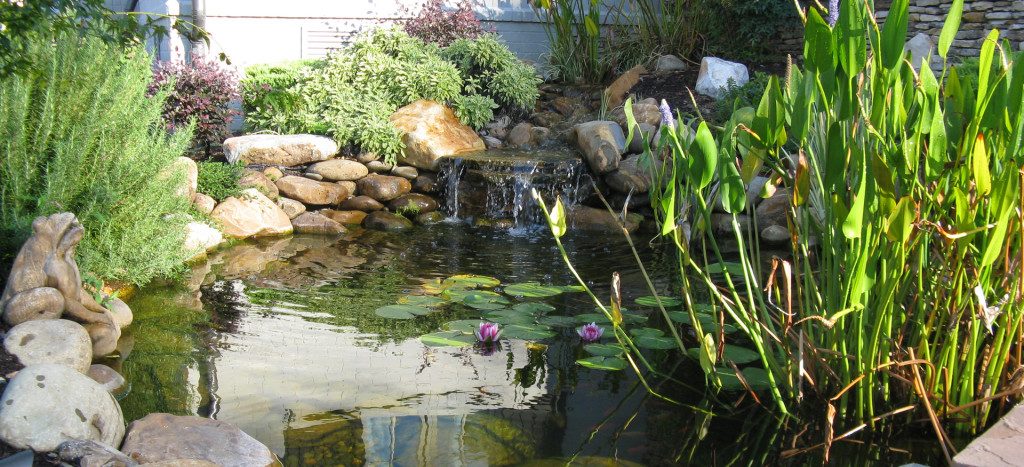
There’s an ongoing debate about the use of beneficial bacteria in a water garden or pond. One side says that this important bacteria needs to be added to the startup of a pond, or even in ponds with heavy fish loads. Others say that it’s not necessary because ponds and water gardens will quickly grow it’s own beneficial bacteria. With the debate raging hot and heavy, let’s jump right into the middle of it.
What Is Beneficial Bacteria
First, let’s take a look at why this type of bacteria is so important to the ecosystem of your pond or watergarden.
People normally tend to cringe when a discussion turns to bacteria. Society mostly associates bacteria with nasty, infectious things that cause disease and sickness.
What they fail to realize is that there are numerous kinds of beneficial bacteria that exist all around us, and even inside of our bodies.
This bacteria actually consumes harmful toxins thereby removing them from the environment.
In a pond ecosystem, these harmful toxins can cause cloudy, dirty water and actually kill your fish. The really crazy part is that the fish actually produce these harmful toxins themselves, along with debris such as leaves that decompose in the water.
The beneficial bacteria eats the toxins, removing the toxins from the water and keeping the pH in perfect harmony.
Do I Need To Add Beneficial Bacteria
On one side of the argument, people feel that it’s necessary to add beneficial bacteria to any new pond startups, including coming out of winter hibernation, such as when you complete your watergarden spring startup, and to ponds with a heavy fish load.
These proponents argue that although a pond will grow beneficial bacteria naturally, for a startup pond or one that has a heavy fish load, it simply takes too long. In the meantime, you spend time fighting to keep the pH and other important chemical levels in the proper range. It also gives unwanted bacteria and algae time to take root. All of this makes it difficult to provide an ecosystem that is optimum for your fish to thrive in.
Now on to the other side of the argument.
There are just as many people who contend that adding beneficial bacteria is totally unnecessary and a waste of money. Proponents of this argument make the point that added bacteria don’t actually cause beneficial bacteria to grow. They argue that all the added bacteria does is clean the water out and provide the proper environment for beneficial bacteria to grow on their own.
This group also argues that all of the artificial bacteria is grown by basically three national chemical companies. They contend that the bacteria necessary for an optimum pond ecosystem is not stable enough to be shipped in a bottle, and therefore is unable to be sold in a bottle. It simply won’t survive that long.
They further this argument by saying that every area and environment is different, so what works in one part of the country would not work in another. By their line of thinking, pond owners should look to inhabit their ponds or watergardens with bacteria from their immediate environment as that is the bacteria necessary for the local ecosystem.
Here’s the deal, though. Just like with many arguments that take place, there’s no real right or wrong answer. If you don’t feel it’s worth the investment to add beneficial bacteria to your pond, then don’t. The proper bacteria will grow quickly enough and you’ll just have to work to make sure your water stays within proper parameters in the interim.
If you want to start your pond out right from the very beginning, then make the investment in beneficial bacteria. It will infuse your water ecosystem with the bacteria necessary to control important chemical levels, allowing your fish to grow and thrive quickly.
Both sides agree on one thing, though. If you don’t have fish or plan to have fish in your pond, adding beneficial bacteria is unnecessary as it will grow quickly enough on it’s own without the fish byproducts altering the chemical balance.
